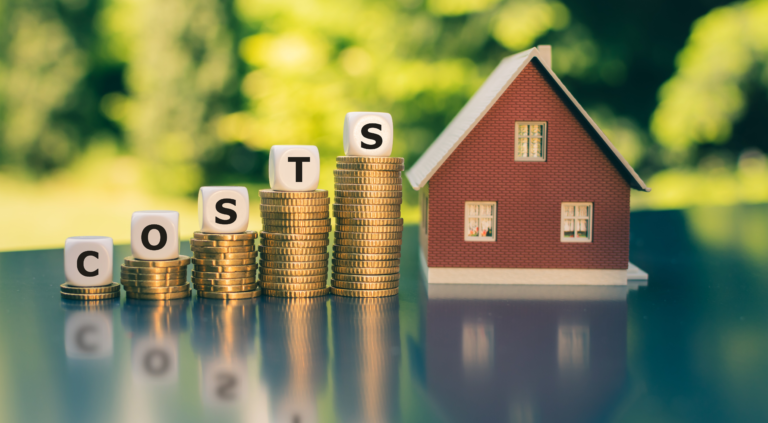Have you become swamped with the upkeep and expenses of homeownership? Owning property may be a part of the American Dream, but there are a lot of costs that aren’t always openly talked about; especially for first time home buyers. In fact, there are a handful of unforeseen expenses that can ambush the unexpectant homeowner. These hidden costs can disrupt the tranquility of homeownership and threaten your financial stability. If some of the expenditures below are stretching your budget too thin, it may be time to reevaluate.
1. Maintenance and Repairs
Home maintenance and repairs are somewhat sporadic. What is certain is that eventually, something in your home will break or need replacing. Roof leaks, broken appliances, plumbing issues and the standard wear-and-tear will demand attention and funds to fix them.
There are also the bigger issues like structural problems, electrical malfunctions, HVAC failures, and pest infestations that can quickly become costly work. If there is not a savings buffer in place to handle repairs, homeowners may find themselves living in a house that is falling apart or drive themselves into debt to afford those repairs.
2. Mortgage Increases
Fixed-rate mortgages provide a sense of security and stability, while variable-rate mortgages subject homeowners to the risk of escalating costs over time. If you did not purchase your home with a fixed mortgage, the amount you pay each month is at risk of increasing. How much a mortgage will cost a homeowner is one of the main focal points of deciding whether the home is affordable or not.
Basing your ability to afford a home on a mortgage that is not fixed can cause issues later down the line. If the mortgage has increased to a point where finances become tight, homeownership quickly becomes stressful and your fixed costs exceed over a threshold one can comfortably afford.
3. Priced Out by Property Taxes
Property taxes are typically paid twice a year and can be paid out of an escrow account. The amount homeowners pay are determined ad valorem, meaning according to the value of the property. In the state of California this can range anywhere between .6%-1% of the home’s value for county property taxes.
But why do property taxes increase? As years pass, a property’s value tends to trend upward. Because property taxes are ad valorem, the taxes will increase in accordance to the property’s value. However, the challenge to homeowners arises with income stagnation. Typically, entry level workers just entering the job market can expect their income to grow overtime with experience. Yet, as we age our salaries tend to stagnate after a certain point. Once we retire, we end up living off of a fixed income.
In a typical economy and housing market, the value of the home and property taxes will rise. In 1978, California voters passed Proposition 13 and determined that property taxes could not increase more than 2% a year. While this limitation helped keep taxes from skyrocketing, it did not halt them all together. The steady rise of property taxes throughout the years will sometimes threaten a homeowner with financial hardship and jeopardize their homeownership overall if their income does match the growing pace of property taxes.
4. HOA Fees
Similar to an unfixed mortgage and property taxes, HOA fees can increase over time. The monthly dues required by a homeowners association are meant to fund the upkeep of community amenities and services, but the HOA board may hike up premiums at any given moment. An HOA board determines fee increase percentages to meet budget needs.
The cost per month will depend on where the community is located. Cities and states with a higher cost of living will undoubtedly experience higher HOA fees. The gap in price is wide, ranging anywhere from $100 to $1,000 per month. Home buyers may enter into an HOA and budget for the additional cost initially agreed upon, but the unpredictability of increases could likely hurt someone’s ability to afford payments.
5. Life Circumstances
In some scenarios, it might not be the direct costs of homeownership that cause you to struggle with keeping your home. Instead, the onus may lie with unforeseen external forces. Events such as sudden job loss can plunge families into financial turmoil, making it difficult to keep up with expenses. The loss of a loved one or a debilitating medical condition can pile one emotional distress on top of financial strain. Divorce, car payments, credit card debt, and other burdens all have the ability to destabilize your homeownership. Each of these events highlight the fragile relationship between personal well-being and financial security.
What To Do When Homeownership Costs Too Much
Facing the prospect of parting with your home is never easy, especially when it feels like the last resort. However, in many circumstances, selling could be the lifeline you need to escape ongoing financial hardship.
The truth is, the landscape of homeownership has evolved significantly over the past few decades. Fortunately, there’s a solution that can provide a swift exit without the typical hassles associated with traditional selling methods: selling to a cash buyer.
Unlike listing with a realtor, which can be time-consuming and uncertain, selling to a cash buyer offers a streamlined process. With cash in hand, cash buyers can expedite the transaction, allowing you to close quickly and move forward with a fresh start. For those stuck in a home with major damage or with too many expenses, Quickturn Property Solutions provides you a way out by purchasing properties as-is: no repairs required.

